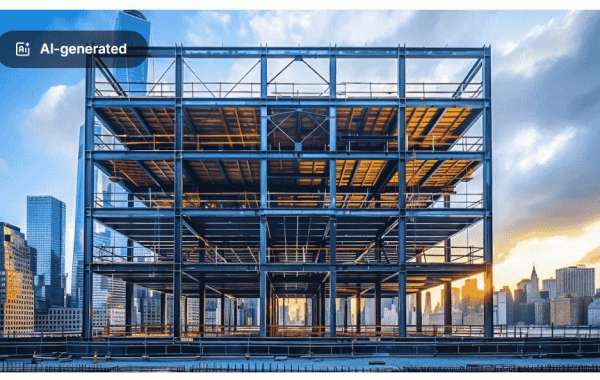Custom metal buildings have become a popular choice for various construction projects due to their versatility, durability, and cost-effectiveness. These structures can be tailored to meet specific requirements, making them suitable for a wide range of applications, from industrial warehouses to commercial facilities and even residential homes. In this article, we'll explore the advantages of custom metal buildings, the role of concrete tilt-up construction in these projects, and how various factors influence metal building prices.
Advantages of Custom Metal Buildings
One of the most significant benefits of custom metal buildings is their adaptability. Unlike traditional construction methods, metal buildings can be designed to meet the precise needs of a project. Whether you require a large open space, specific door placements, or particular insulation levels, metal buildings can be customized to suit your requirements.
Durability is another key advantage. Custom metal buildings are typically constructed from steel, which is resistant to many common hazards, including fire, termites, and extreme weather conditions. This durability translates into lower maintenance costs over the lifespan of the building, making it a cost-effective choice for long-term use.
Additionally, custom metal buildings are often quicker to construct than traditional buildings. The components are usually prefabricated off-site and then assembled on location, reducing construction time and labor costs. This efficiency is particularly beneficial for businesses that need to expand quickly or for projects with tight deadlines.
The Role of Concrete Tilt-Up Construction
Concrete tilt-up construction is a technique often used in conjunction with custom metal buildings to create strong, durable structures. In this method, concrete panels are cast on-site and then lifted into place to form the walls of the building. This process offers several advantages:
- Speed: Concrete tilt-up construction is known for its efficiency. Since the panels are formed and cured on-site, the construction process can be faster than traditional methods. This speed can be crucial in projects where time is of the essence.
- Cost-Effectiveness: By eliminating the need to transport large pre-made panels to the construction site, concrete tilt-up construction reduces transportation costs. Additionally, the method requires fewer laborers, further reducing overall expenses.
- Durability: Concrete is a strong, durable material that provides excellent protection against environmental factors. Buildings constructed with concrete tilt up construction can withstand severe weather conditions, making them ideal for regions prone to hurricanes, tornadoes, or heavy snowfall.
Understanding Metal Building Prices
When planning a project involving custom metal buildings, it's important to understand the factors that influence metal building prices. Several elements can affect the overall cost, including:
- Size and Complexity: The size and design complexity of the building are major factors in determining metal building prices. Larger buildings or those with intricate designs will require more materials and labor, leading to higher costs. However, the ability to customize the design allows for balancing needs and budget effectively.
- Material Costs: The price of steel, which is the primary material used in custom metal buildings, can vary based on market conditions. While steel prices may fluctuate, steel remains a cost-effective option due to its long-term durability and low maintenance needs.
- Construction Techniques: The method used to construct the building, such as concrete tilt-up construction, can also influence metal building prices. While this technique may involve higher upfront costs, the speed and durability it offers can result in long-term savings, particularly in reduced labor costs and minimal maintenance.
- Additional Features: Adding features like insulation, energy-efficient systems, or custom architectural details can increase metal building prices. However, these features can also enhance the building's functionality and efficiency, providing value over time.
Conclusion
Custom metal buildings offer a flexible, durable, and cost-effective solution for a variety of construction needs. The integration of concrete tilt-up construction further enhances the strength and efficiency of these structures, making them an excellent choice for both commercial and residential projects. Understanding the factors that influence metal building prices is crucial for ensuring your project stays within budget while meeting all of your specific requirements. By considering all these aspects, custom metal buildings can provide a smart, long-lasting investment for any construction endeavor.




